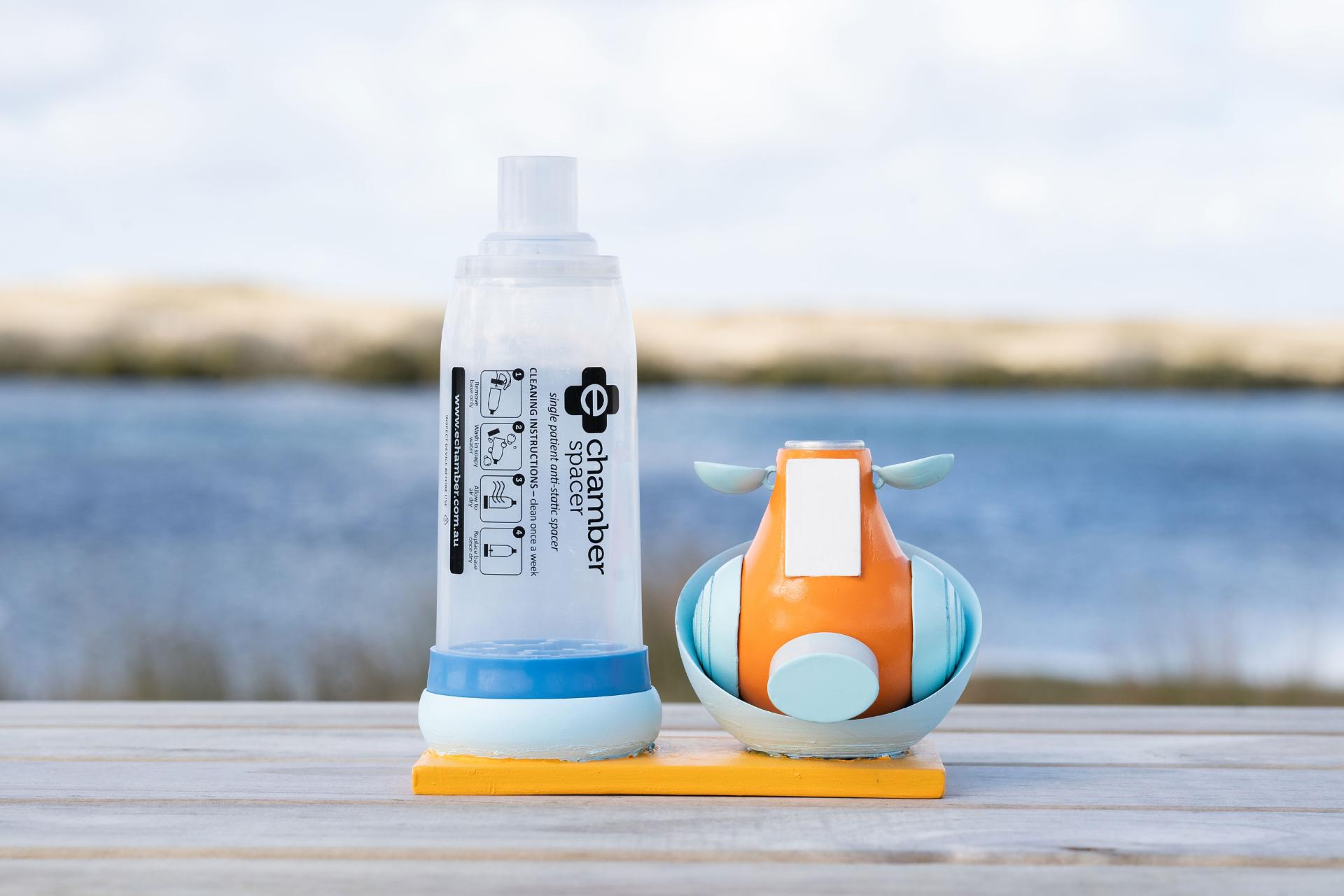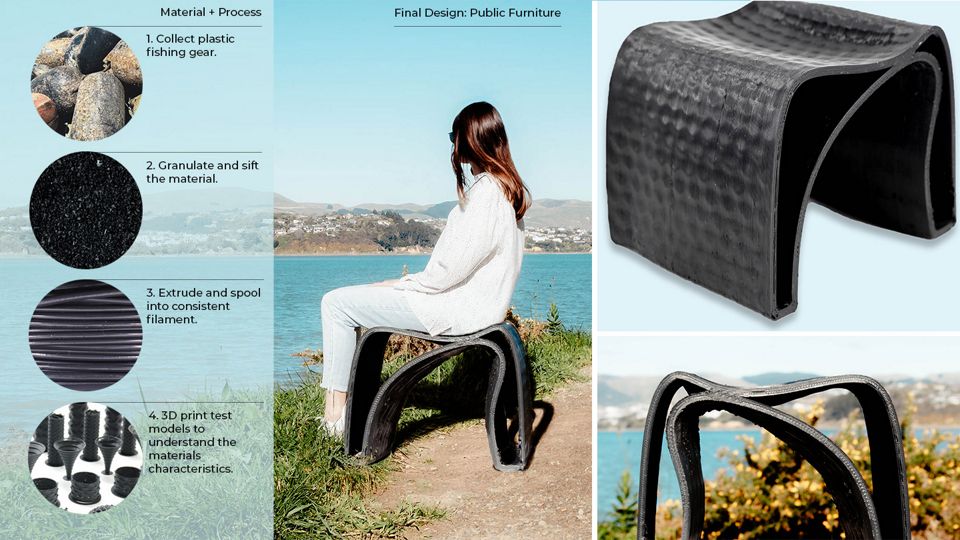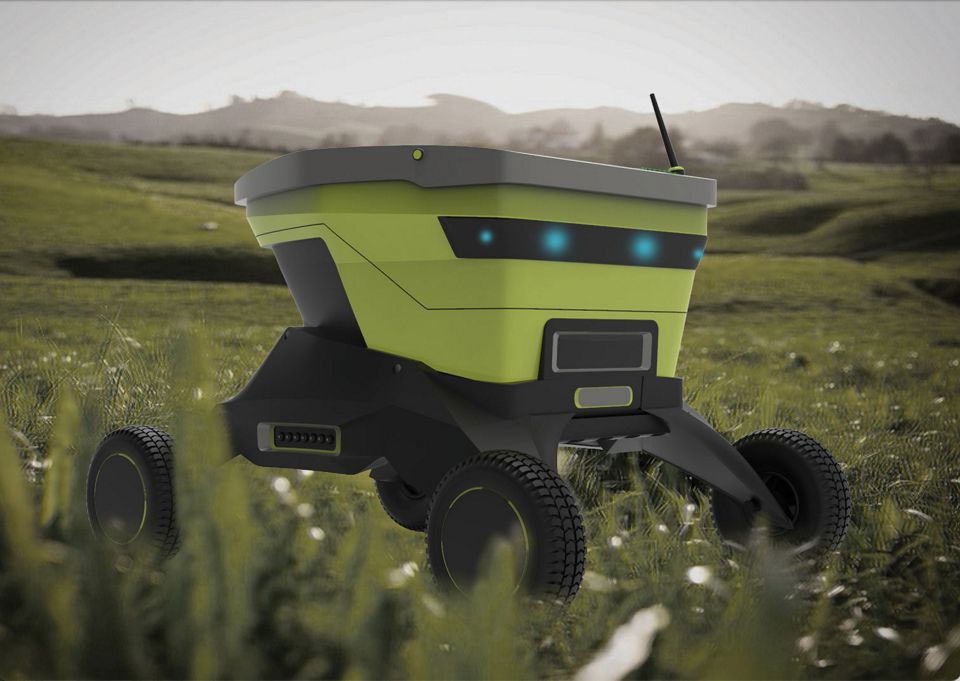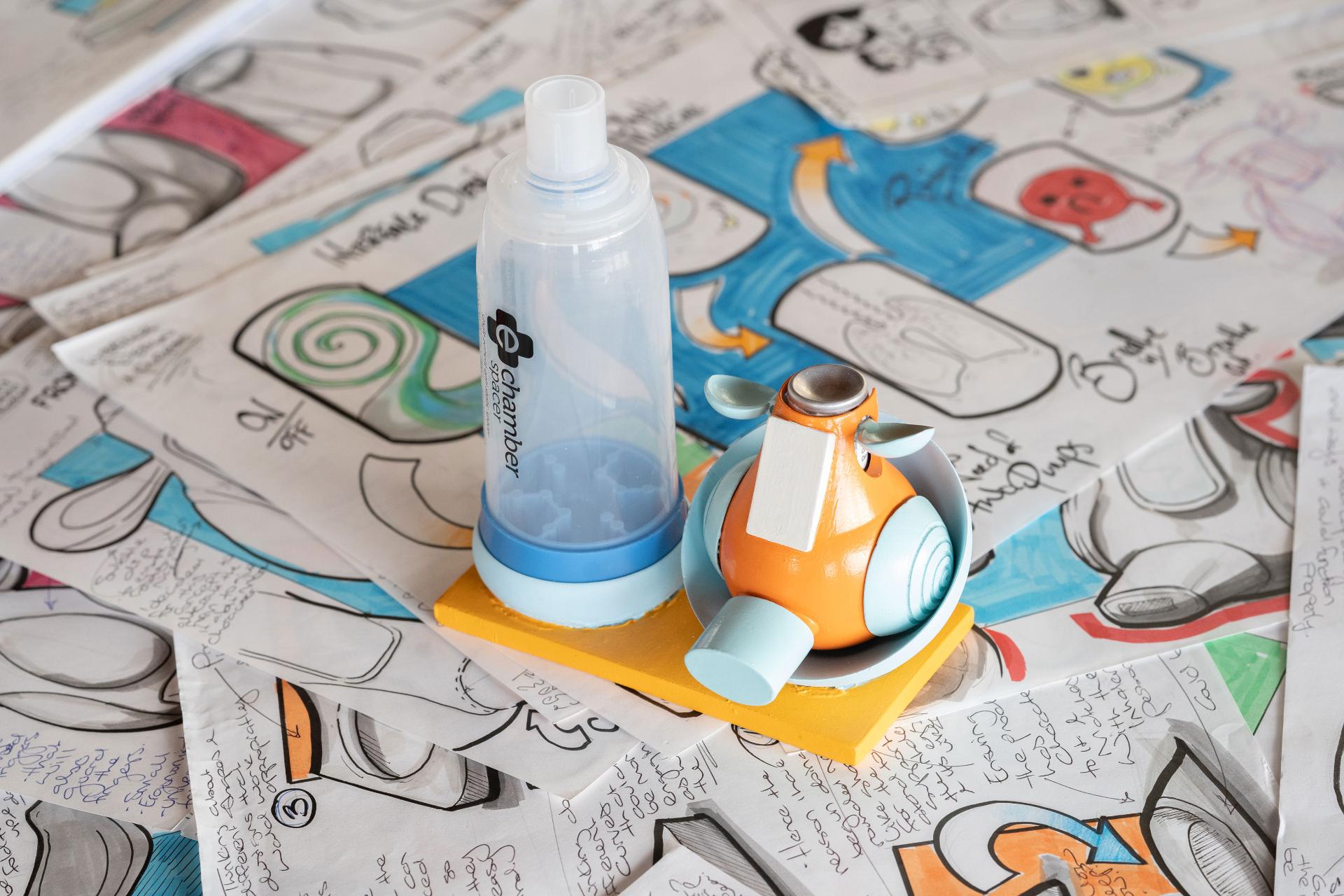
Kiwi reinvents asthma inhaler with child-friendly design
Massey University graduate crowned James Dyson Award National Winner
25 August 2021

This year’s national James Dyson Award winner, Hae Hae, addresses the chronic health issue of asthma and its effect on children. Hae Hae, designed by Massey University graduate Maisie Panoho, is an inhaler designed to make it easier and more effective for children to take their medicine. Learning of common problems with conventional devices from family and friends who suffer asthma, Maisie focused on repairing the broken relationship between the inhaler and spacer, while introducing a display for useful information and a reward system.
Asthma is a chronic condition that is incredibly prevalent worldwide, with an estimated 262 million people affected globally.1 In New Zealand, one in seven children report taking asthma medication,2 while 47% of hospitalisations from asthma are children, with more than 586,000 school days missed every year.3 One in 10 hospital stays are due to asthma and respiratory conditions. It is the third leading cause of death in New Zealand.4
Maisie says: “Throughout my life, I have seen my family and friends struggle from asthma. In my research, I found that smaller hands find the inhaler awkward to hold and children can have more difficulty trying to trigger the device. Hae Hae is different to anything else currently on the market as there is nothing that caters specifically for children. This product has been designed to be easy to use and understand, and ideally provide better outcomes for children with asthma. It’s a privilege to be awarded this year’s James Dyson Award national winner. It is a great acknowledgement of all the time, passion and hard work I’ve committed to solving this problem.”
The Invention
Masie developed Hae Hae through extensive product research, rapid prototyping and prototype testing with children. When Hae Hae is turned on, the device will display information including the battery life, how much medicine is available, when and how long to shake the inhaler, and a reward system for taking one's medicine. The oval mouthpiece is more secure, easier and has better stability when placed in the spacer. The canister is locked in place with keyhole access at the back that opens when the user is running low on medicine.
If an inhaler is triggered wrong, they might not receive the full dose of their medicine, which can potentially be dangerous. The device can be triggered easily by both adults and children with the extension of the trigger wings that can be folded down when not in use. Due to the inhaler's ergonomic design, it is better suited for smaller hands to hold onto.
Sir Ray Avery says: “This device has a game-changing design that could save lives. New Zealand has the highest rate of asthma in the developed world, and this could really help children be more engaged with taking their medicine. Maisie has thought about this issue, realised there was nothing on the market and designed a clever solution that has been executed well. It’s a clinical problem that has a worldwide application and could easily be produced and rolled out globally to benefit children everywhere.”
Winning the national leg of the James Dyson Award will inject NZ$3,900 into Maisie’s project to further develop Hae Hae. Maisie aims to continue making improvements to make it more portable, comfortable and engaging to encourage children to understand why it’s important to take their medicine.
The Runners Up
Runners up in this year’s competition included Victoria University of Wellington students Matthew O’Hagan and Courtney Naismith with their design The Utilize Series; a collection of high-end 3D printed products made locally out of hard-to-recycle plastics and other waste materials. The second runner-up is Massey University student Zene Krige, with her design Trax, an autonomous ground vehicle designed to detect and spot-spray weeds on agricultural land.
The Utilize Series
Problem: Over the last century, the linear consumption pattern of ‘take, make, use and waste’ has resulted in a severe pollution problem that is causing detrimental effects to our natural environments, biodiversity and health. The lack of responsible recycling infrastructures has resulted in many hard to recycle plastics and other materials ending up in landfills.
Solution: The Utilize Series aims to add value to discarded materials and ensure they are continuously reused after they have reached their end of life. The Utilize Series uses a collection of machines in conjunction with one another to form an effective upcycling process that results in a 3D printed filament. The filament is then used to create three 3D printed designs including chandeliers made from polystyrene coffee stirrers, baskets made from flax offcuts and soft plastics, and furniture made from plastic fishing gear collected from the waterways.

Trax
Problem: It’s essential for farmers to keep weeds at bay, but the common use of broad-spectrum spraying causes unnecessary amounts of herbicide to enter the environment while treating weeds, causing herbicide resistance over time.
Solution: Trax is an autonomous herbicide vehicle designed to roam the fields throughout the day detecting and targeting weeds with herbicide spray. The reduction in herbicide being applied with a targeted approach offers environmental benefits while also reducing the time spent by the farmers.

Judging Panel
This year was another record year for the James Dyson Award, with more than 2,000 entries globally. The judges for New Zealand’s 2021 entries included highly respected scientist, inventor and social entrepreneur Sir Ray Avery, sustainable business visionary and social entrepreneur Brianne West, futurist, investor and entrepreneur Derek Handley and Dyson engineer Made Artha. The judges reviewed local entries submitted from university students across the country to select the New Zealand Winner and two runners-up.
All three finalists will move on to the international stage where a Top 20 will be selected by a panel of Dyson engineers. The International Winner and Sustainability Winner will be handpicked by Sir James Dyson, with the International Winner receiving NZ$59,000 and NZ$9,900 for their university, and the Sustainability Winner receiving NZ$59,000.
The Top 20 will be announced on Wednesday 13 October and the International Winners unveiled on Wednesday 17 November 2021.
About the James Dyson Award
The competition is open to student and graduate (within four years) inventors with the ability and ambition to solve the problems of tomorrow. With students from 27 markets and regions now competing, the award is set to welcome new approaches to a broader range of global issues than ever before.
The James Dyson Award forms part of a wider commitment by Sir James Dyson, to demonstrate the power of engineers to change the world. The Dyson Institute of Engineering and Technology, the James Dyson Foundation and James Dyson Award embody a vision to empower aspiring engineers, encouraging them to apply their theoretical knowledge and discover new ways to improve lives through technology and design engineering.
[1] Asthma (WHO)
[2] Asthma Waikato
[4] Key statistics | Asthma Foundation NZ
ANZ Press Office
Email: aupressoffice@dyson.com
